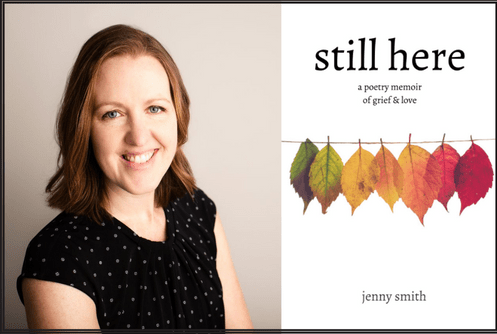West Central Abbey Uses Lent to Discuss Death and Grief, Subjects Many Don’t Talk About
This news story was made possible by contributions to FāVS from readers like you. Thank you.
News Story by Cassy Benefield
For their Ash Wednesday service Wednesday night, the West Central Abbey began their reflection of the 40 days of Lent by discussing death.
During this season, many Christians commit to mortifying their flesh by fasting or giving up certain luxuries to imitate or follow “Jesus Christ’s sacrifice during his journey into the desert for 40 days” before Easter.
Because West Central Abbey focuses on “creativity in all [their] endeavors,” the leaders at the Abbey often incorporate non-traditional ideas into what is traditional, following in the “counter-cultural footsteps” of abbey monks and nuns in time past.
So, the idea of mortifying the flesh gives way, instead, into a space to discuss mortality.
“My congregation is not entirely, but predominantly, younger adults — so people in their 20s and 30s,” said the Rev. Katy Shedlock, co-pastor of West Central Abbey and its church community, the Creator’s Table. “And maybe other than a grandparent figure, often many of them have not gone through what I would call like the first big death.”
The first time Shedlock approached Lent surrounding the topic of death happened the year before COVID.
For the Abbey’s 2019 Ash Wednesday service, they hosted a panel of experts on death, which included a hospice chaplain, who also happened to be a physician and who anatomically described the process of death as it moves through the body, a music-thanatologist, someone who plays the harp near the bedsides of those who are near death, and a Victorian-era historian, who spoke on the culture of death during that time.
For this year’s Ash Wednesday service, they invited a member of their congregation, who is the assistant funeral director for the Neptune Society in Spokane, along with one of their co-workers, to discuss mortuary science and the processes of cremation and embalming the remains of loved ones.
In planning for Ash Wednesday and the Lenten season then and now, Shedlock says, “It just made me realize how little space we create to talk about death in our culture on a regular basis.”
So, having these conversations talking about death have been very “enlightening” and “oddly reassuring” for people, she says.
This year, they also will be centering on the theme of grief, their new Lenten Sunday series titled, “Making Space for our Grief.”
For the Sunday liturgies during Lent, their services will start with confessional poems on themes as “silly” as admitting something you did as a child or makes you laugh now to “more serious” themes of confessing “something that’s still bothering you or you confess something systemic that you participated in.”
Then, members of the congregation are invited to tell a story, what other traditions might call a “testimony” on a time “you ugly cried.”
“I think anything that goes unacknowledged is pretty difficult to heal,” Shedlock said, adding that during the Abbey’s Lenten services, she hopes “this is a time where those things that are sitting with us, but maybe even in ways that we don’t fully know, might safely come to the surface.”
Shedlock also believes one night in particular will be very special for her congregation during their Lenten calendar.
Rev. Jenny Smith, an ordained Methodist pastor, who is a writer and speaker, will share her own experience with grief at the Abbey on Thursday, March 16, at 6:30 p.m.
“Grief is a challenge for so many of us,” Smith said. “We avoid the very thing that would enable us to continue healing as humans. I’m honored to join West Central Abbey and others this Lent to reflect deeply on the invitation of grief in our collective lives.”
Smith’s brother unexpectedly passed away a year ago, and she wrote a poetry memoir entitled, “Still Here,” as one way to make sense of the unbearable grief.
Shedlock adds that they will not only listen to Smith’s story and to the poems she wrote, but the Abbey will also host a conversation about “grief and creativity, and grief and spirituality, and how all of those things work together in her experience of writing the book.”
Then those gathered that evening will also do some creative writing.
“This is just such an important resource for anyone who is grieving themselves, for anyone who might be close to someone who is grieving or going through a big loss,” Shedlock said. “I think there’s something about poetry that really makes big, tough things a little easier to handle.”
She adds that Lenten services in the Christian tradition make space for reflecting on mortality and the knowledge that “we’re not going to be here forever” and asking “how to we want to approach our lives with intention.”
And, this year, for the Abbey and its participants, Shedlock hopes that intention begins, and hopefully doesn’t end, with conversations about death and grief.
From the Abbey’s online special events calendar:
- Sunday liturgies at 4 p.m., featuring confession poems and stories about ugly cries on the Lenten series titled, “Making Space for our Grief.”
- The Rev. Jenny Smith reads from her new poetry collection on grief, “Still Here,” on Thursday, March 16, at 6:30 pm.
- Palm Sunday Liturgy, April 2 at 4 p.m.
- Maundy Thursday Liturgy, April 6 at 7 p.m.
- Good Friday Liturgy, April 7 at 7 p.m.
- Easter Vigil Saturday, April 8 in the evening, time TBD.
Follow the Abbey on Instagram for more information.
This news story was made possible by contributions to FāVS from readers like you. Thank you.







